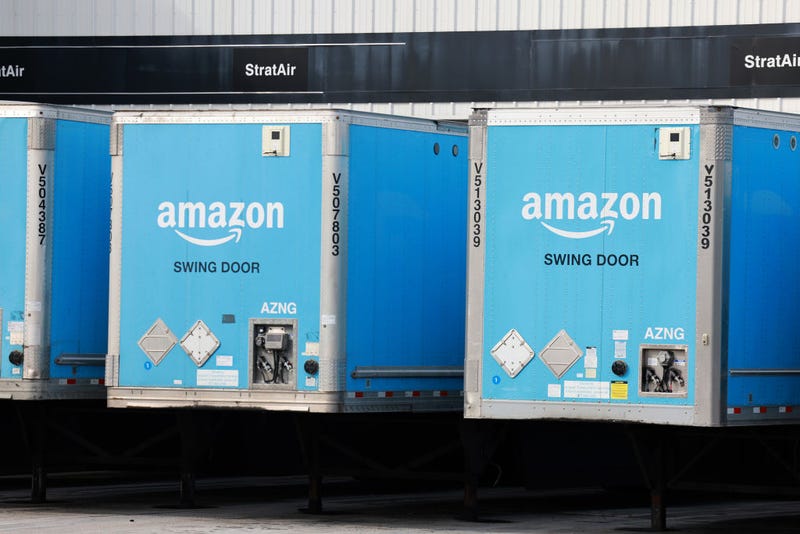
Amazon has officially been sued by the US government and 17 states in a landmark monopoly case that addresses years of allegations claiming the online store abused its dominance in the e-commerce space and harmed fair competition.
The lawsuit from the Federal Trade Commission and 17 attorneys general marks the government’s most direct and fierce attack against Amazon, alleging that it unfairly promotes its own platform and services at the expense of third-party sellers who rely on the platform for distribution.
“Amazon is now exploiting its monopoly power to enrich itself while raising prices and degrading service for the tens of millions of American families who shop on its platform and the hundreds of thousands of businesses that rely on Amazon to reach them,” FTC Chair Lina Khan said in a statement. “Today’s lawsuit seeks to hold Amazon to account for these monopolistic practices and restore the lost promise of free and fair competition.”
The complaint was filed in the US District Court of the Western District of Washington and is seeking a court order that would block Amazon from engaging in the allegedly anticompetitive behavior.
While Amazon may have started as an online book store, it has since grown into a place to buy everything and anything.
The FTC shared that it is considering several options for what to do with the company, and a breakup is still on the table.
According to the FTC, Amazon’s rise to prominence as the “everything” store has harmed its competition by requiring sellers on its platform to purchase Amazon’s in-house logistics services in order to get the best seller benefits, which it calls “Prime” eligibility.
The suit goes on to allege that Amazon forces sellers to list their products on the site at the lowest prices anywhere on the web instead of allowing them to list their products at competing marketplaces for a lower price.
The FTC alleges that because of Amazon’s dominance in the world of e-commerce, sellers have almost no other choice but to accept the terms of the company, resulting in higher prices for consumers and a worse consumer experience.
Amazon also sells its own products on its website, and the FTC says that in its search results, its items are ranked higher than those sold by third-party distributors.
Khan shared with reporters on Tuesday that Amazon was “squarely focused on preventing anyone else from gaining that same critical mass of customers.”
“This complaint reflects the cutting edge and best thinking on how competition occurs in digital markets and, similarly, the tactics that Amazon has used to suffocate rivals, deprive them of oxygen, and really leave a stunted landscape in its wake,” Khan said.
The states named alongside the FTC in the case include Connecticut, Delaware, Maine, Maryland, Massachusetts, Michigan, Minnesota, New Jersey, New Hampshire, New Mexico, Nevada, New York, Oklahoma, Oregon, Pennsylvania, Rhode Island, and Wisconsin.
Khan says that Amazon executives could be held personally liable if there is sufficient evidence they played a role in the company’s illegal conduct. She also stressed at the press conference that whatever they decide to do with the company needs to first stop the illegal actions.
“Ultimately, you will want to make sure that any remedy is halting the illegal conduct, preventing a recurrence, and ensuring that Amazon is not able to profit and benefit from its illegal behavior,” Khan said. “When we get to the issue of remedy, those are going to be the principles we’ll be focused on.”
Amazon’s senior vice president of global public policy and general counsel, David Zapolsky, released a statement following the filing of the lawsuit, saying it was “clear the FTC’s focus has radically departed from its mission of protecting consumers and competition.”
“If the FTC gets its way, the result would be fewer products to choose from, higher prices, slower deliveries for consumers, and reduced options for small businesses — the opposite of what antitrust law is designed to do,” he said. “The lawsuit filed by the FTC today is wrong on the facts and the law, and we look forward to making that case in court.”
